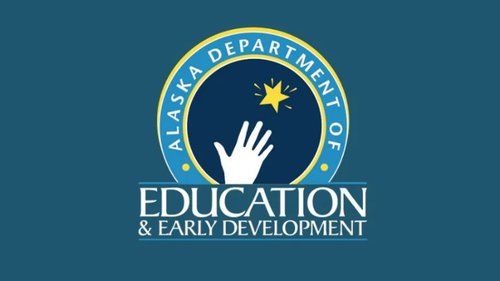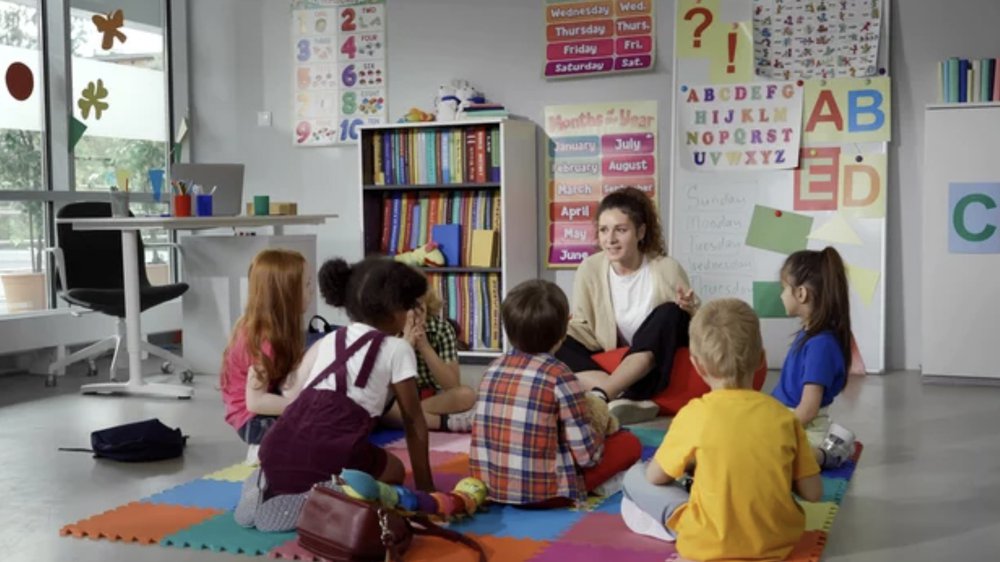Colorado is launching a teacher apprenticeship program in race to solve chronic staff shortages – By Erica Breunlin, Colorado Sun
They barely ever stop wiggling or giggling, and yet Deejha Blash-Lopez still manages to teach her kindergarten class how to sound out words and syllables — the same skills she learned decades ago in a classroom just down the hallway.
Blash-Lopez, a teacher at Mountain View Elementary School in Longmont, has come full circle at her school, despite being only about a year into her career. She now teaches in the same room where she attended fifth grade and still learns from her second grade teacher, Mrs. Horowitz, who continues to sub at the elementary school and was the first person to nudge her toward teaching.
The 22-year-old teacher is among a growing number of Colorado educators who have made their way into the classroom through apprenticeships, which have a deep history in other fields but are newer to teaching.
The Colorado Department of Education and school districts across the state are expanding apprenticeship opportunities for promising teaching candidates as staff shortages continue to cripple many schools. During the 2023-24 school year — the most recent year of available data — 635 teaching positions in Colorado schools were left unfilled for the year, according to figures from CDE. Meanwhile 1,756 vacant positions were filled using a temporary fix allowed by the state, such as granting workers an emergency or alternative teaching license.

School closures: More big districts are making tough choices – By Matt Zalaznick, District Administration
Seattle Public Schools calls its closure plan, which could impact up to 20 buildings, “A System of Well-Resourced Schools.” Columbus City Schools’ proposal aims to reimagine and redesign education in Ohio’s largest city and district.
They’re both examples of the tough choices superintendents and their teams are grappling with as declining numbers, school choice and other factors sap enrollment in many parts of the country. Seattle is moving toward consolidating 70 elementary schools—many of them under-enrolled—into 50 by the 2025-26 school year to provide “stability and consistency.”
“Empty seats can lead to fewer staffing resources, more staffing adjustments in the beginning of the school year and inequitable offerings from school to school,” the district says on its website. “If we maintain the current system, we will need to reduce services. This could mean having more students per teacher, reducing core school staff, scaling back preschool offerings and suspension of new curriculum adoption.”
The district, which warns it may have to close schools even if the current plan is not approved, is now holding community meetings to get feedback on its proposal. Administrators say the goals of the school closures will include those identified by families, staff and students at previous listening sessions.

Alaska lawmakers unite to stabilize homeschool program in wake of court ruling – By Claire Stremple, Alaska Beacon
Families who use Alaska’s homeschool program will soon have clarity on how they may spend their allotments of state education money.
Lawmakers directed Alaska’s Board of Education and Early Development to write temporary regulations for the state’s correspondence school program that comply with the state’s constitution on Wednesday night. The law also requires that the education department begin to monitor allotment spending for the first time in a decade. It was approved unanimously by both the House and Senate.
The move comes after a Superior Court ruling found two components of the laws that govern the state’s correspondence program to be unconstitutional in April, which left the families of more than 22,000 students unsure of how to pay for curriculum, tutoring and physical education. The state has appealed the decision; the Supreme Court scheduled the hearing for June 25.
Lon Garrison, director of Alaska Association of School Boards, said the advocacy group supports the new law. “It is simple and similar to what existed prior to 2014,” he said by text on Wednesday. He referred to the year then-Sen. Mike Dunleavy changed state law to allow families to spend homeschool allotments on materials from private and religious institutions — the pieces of statute a judge found to violate constitutional prohibitions against spending state money on private education.

West Virginia offering resource for student mental health & well-being – From Staff Reports, WVN News
As part of National Mental Health Awareness Month, the West Virginia Department of Education has announced a new resource available to families, educators, caregivers and others to support student mental health.
ParentGuidance.org, a 24/7 online platform, assists those who care for children to address and elevate mental health, wellness and self-care. These tools are designed to enhance the human connections vital for school communities to thrive, and West Virginia is the first to offer them statewide.
Throughout the United States, ParentGuidance.org works with schools and their communities to empower families to support the mental health needs of children.












